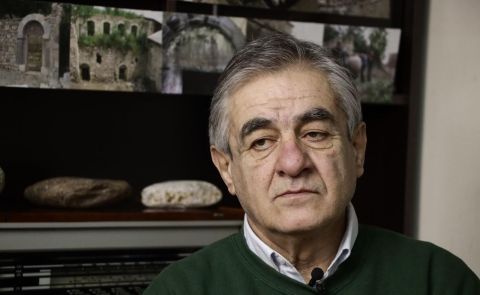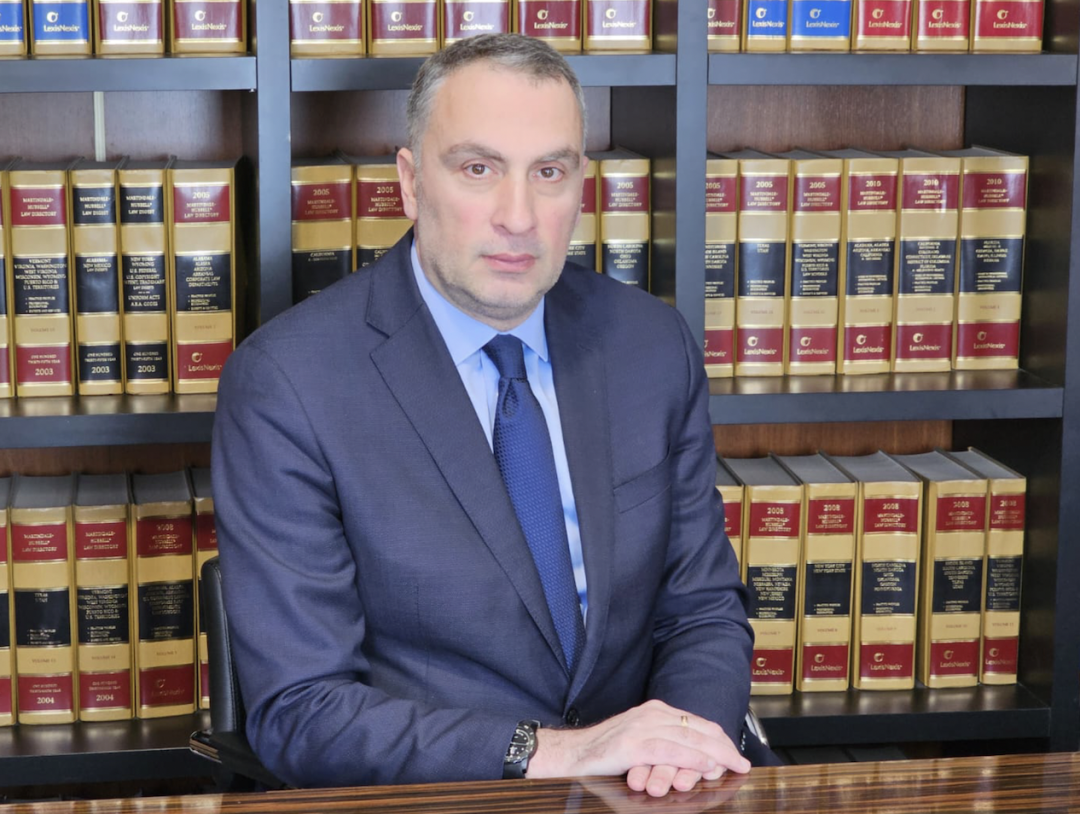
Victor Kipiani: Look Beyond MIR to Assess Appetite for Sanctions Compliance

The MIR payments system is the Russian equivalent of VISA or Mastercard. As a network, it was developed by Belgium’s OneWay, but Russia’s National Card Payment System (NSPK) has always been wholly owned by the Central Bank. That makes it uniquely associated with the state, provides the network with an advantage in the domestic market, but makes it very difficult to internationalise. The brand is politicised.
The network's internationalization went hand in hand with the Russian economy's outreach, with companies such as Aeroflot and Russian Railways as the main vehicles. After 2014 and Russia’s annexation of Crimea, which triggered the first wave of sanctions, the brand had some practical significance. In Russia, chains such as McDonald's began accepting MIR cards. By 2021, there were over 110 million MIR cards issued. However, the brand took off after Russia’s invasion of Ukraine, and by September 2022, the brand had a 50% share of the domestic market and was rising.
The catalyst for this domestic growth was the US State Department, which in February 2022 introduced sanctions on the NSPK. The “compliance trajectory” has not been linear. Turkish and Georgian private lenders have been walking away from MIR, largely for reputational reasons. However, in February 2024, the noose tightened as the State Department imposed sanctions against the operator, with a very real prospect of secondary sanctions on the table. Major operators, like China’s AliExpress, continue to accept it. For the rest of the world, the issue at hand was mostly reputational. The question of MIR illustrates the equilibrium between the gravitational and symbolic importance of Russia as an economy and a sign, which is equivalent to the expression "Russian customers are welcome here."
To understand this balancing act, we have reached out to a legal expert with geopolitical expertise, Victor Kipiani. Mr. Kipiani heads the Georgian think tank, Geocase, which specialises in geopolitics and geoeconomics. Perhaps equally pertinently, he is a co-founder of the MKD law firm, based in Tbilisi, which has a strong financial advocacy brand, specialising in capital markets and corporate law, auditing, and accounting. He is very much on the balancing act between reputation, regulation, and business.
Private lenders started walking away from MIR in September 2022: first İŞBANK and DenizBank, now Armenia and Central Asia. In this picture, where is Georgia? And if it’s not the central bank instructing them, then why do they move away from business? I understand there was some public controversy over the use of MIR by Georgian Airways, for instance.
So, as soon as March 2022, the National Bank of Georgia (NBG) started issuing successive “qualifications” (regarding sanctions against Russia’s financial system). One of them was issued immediately after the question of Georgian Airways emerged, a company that wanted to sell tickets. That was the issue. The cumulative effect of what the NBG’s qualification said was that merely accepting payments for tickets was not, actually, in contravention of Georgian law. That is because while the law saw as contrary to regulation the acceptance of MIR Cards by financial institutions, the regulation of non-financial institutions, such as the Georgian Airways, did not fall within their jurisdiction.
The Georgian Airways said, “Look, we are the national carrier; we want to expand our market share, and up to the second.” There was criticism. Eventually, the company said they were unable to sell even a single ticket by accepting a MIR card because that would require a Georgian commercial bank to engage, and that could not happen. Then they said that promoting the MIR logo was done without the company’s authorisation by one of its Spanish agents, and it was by mistake. They said this agent was reprieved, the logo has been removed, and that’s the end of the story. That is where the story ended. It was physically impossible for them to sell a single ticket. I do not recall a single case since that this issue resurged.
Georgia came before Armenia in terms of walking away from the MIR system.
Correct. The Central Bank of Armenia only made a statement calling for compliance on March 29, 2024. Most Armenian commercial banks then started to remove MIR from their payment structure, beginning on March 30. So, we, Georgia, were quite ahead – understandably enough.
So, both Armenia and Georgia have seen an increase in the flow of people, businesses, and capital fleeing Russia and gathering in the region. In this context, does it really matter whether one can use MIR or not? Is this tightening of the noose of any economic significance?
Well, we don’t have a statistical picture over the question at hand. We can’t measure something not being used. We don’t have grounds for comparison. Most Russian citizens crowding to Russia could use international payment systems like Visa and Mastercard, (not necessarily issued by Russian lenders). Actually, we see an increase of tourism from the post-Soviet space, including Russia. That implicitly answers the question. There is little disruption in that sense. And Russians relocating and setting up businesses are surging. The flow of money appears, in fact, uninterrupted.
However, some people continue to receive Russian invoices, including pensioners from the former Soviet Union. How might that impact them?
Interesting point. In reality, the Russian Federation and Georgia came to an agreement in 1997 whereby each country receiving someone entitled to a pension - the host state - would be responsible to settle payments in its own terms. So, Georgia would be responsible for the Russian pensioners residing in Georgia, Russia would be responsible for the Georgian pensioners residing in Russia. Each country would extend the terms afforded to their own pensioners, as defined by domestic legislation.
Hence, pensioners must apply, and the state is legally bound to pay them. There is not transborder transaction involved in this case. There is only one caveat: the legislation also suggests that if a Russian citizen does not fit the prerequisite requirements to be entitled to a pension – this would include residence of Georgia for a decade – then there is a separate arrangement for payments. The registry does not indicate this separate arrangement has been made, but the numbers must not be significant.
So, does sanctioning MIR make any sense if it does not stem the flow of people and capital? If sanctions have no effect, do they do anything?
Fair question, but there is another consideration. Georgia is very much boastful of its compliance that there is no violation of financial sanctions. Ticking this box for Georgia was “a must” rather than a calculated choice, as this came with foreign policy considerations. The NBG had to act.
Expanding a bit on the question of sanctions, compliance is often complicated. NBG’s decision in relation to another platform present in Georgia, VTB Bank. When the bank was sanctioned in the West, then Georgia followed through. This meant suspending transactions, not revoking the license. The lender still has a license and could transact within the country but not cross-border.
The most important case when discussing compliance is when NBG said that when a Georgian citizen is internationally sanctioned, his assets and accounts can only be frozen by the final order of a Georgian court. That means that international sanctions do not automatically apply. In less technical terms, what NBG says in effect is that if someone holds Georgian citizenship, they are in effect shielded from sanctions, unless “a final decision” is taken by a Georgian court (that includes a final appeal too). To put this mildly, this causes some frustration among our international partners, including the International Monetary Fund, because it “dilutes” immediate effect of international sanctions in Georgia when it comes to internationally sanctioned Georgian nationals.
This question evolved into a scandal, as one of the people under international sanctions was the former Prosecutor General Otar Partskhaladze. It is difficult to prove what was the rationale behind NBG’s clarification, but it is an odd coincidence that this provision shielded him as soon as sanctions were introduced against him. On hindsight, this does appear unfortunate. That incident has put private Georgian lenders in an awkward position, particularly Bank of Georgia and TBC Bank, both of whom are listed in the London Stock Exchange. As listed companies, they are bound to follow international law, and they also need to be compliant with national regulations.
NBG’s then made another awkward statement, suggesting that the “final say” on the matter lies with the management of these commercial lenders. That means the private lenders become de facto regulators when it comes to compliance with international sanctions. This is still a problem.
Therefore, if you are a Russian subject to sanctions but possess a Georgian passport, you may have some protection from international sanctions.
Yes, you have an additional layer issue. Of course, we don’t have a “golden passport” or “golden visa” programme. To be clear, it is also a standard practice of Georgian banks to send regular notifications that no transactions with internationally sanctioned lenders are allowed.
I should also add that looking on EU reporting on Georgian compliance, particularly the European Commission’s November 8, 2023, report, helps to a considerable extent. Let me read you a couple of excerpts.
“Georgia’s financial market infrastructure legislation is only partly aligned with the EU acquis, and the alignment with several EU regulations is still pending.”
“Georgia has made some progress on sustainable finance. In January 2023, the Regulation on Loan Classification and Reporting according to the Sustainable Finance Taxonomy (Taxonomy Regulation) entered into force… In addition, the NBG, in cooperation with various local and international stakeholders, has developed the Sustainable Finance Taxonomy for Georgia. The Taxonomy provides the market with a classification system for identifying activities and/or project categories… It is closely linked to the EU Taxonomy, but it is tailored to the features of the Georgian economy and financial sector and closely follows international practices.”
I think these excerpts are clear regarding Georgia’s compliance with EU standards in the financial services, at least when it comes to sustainable lending practices.
Interview conducted by Ilya Roubanis
See Also


Irina Mamulashvili: Electoral Interference is a Playbook, not a Recipe

Giorgi Gakharia: The EU Should Engage Georgia Despite Its Democratic Backsliding

Peace or Capitulation? Shahverdyan on Armenia-Azerbaijan Agreement and the Nagorno-Karabakh Crisis

Ali Mousavi Khalkhali: Iran Will Avoid Conflict in the Caucasus

